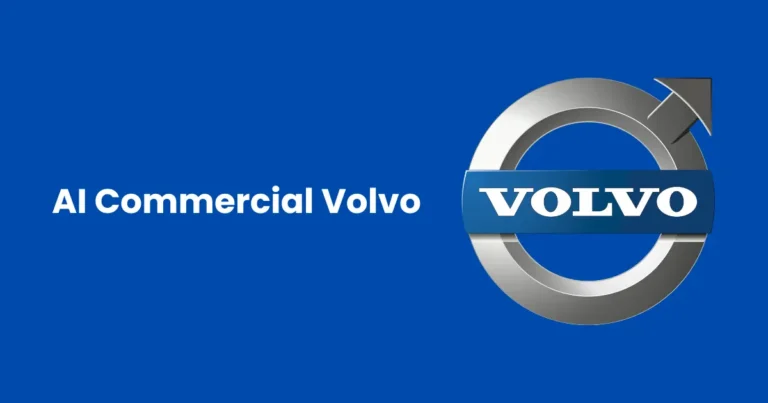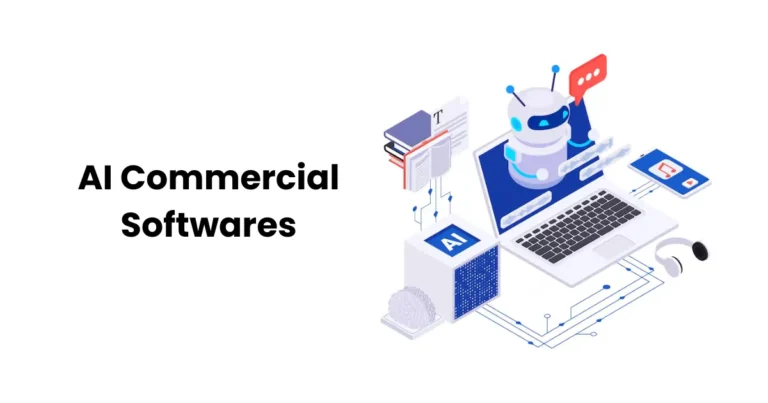AI Commercial Awareness | Key Areas of AI Commercial

Contents
- 1 The Importance of AI in Business Today
- 2 Key Areas of AI Commercial Awareness
- 3 Developing AI Commercial Awareness: Steps for Professionals
- 3.1 1. Stay Informed on AI Trends
- 3.2 2. Take Online Courses and Certifications
- 3.3 3. Analyze Industry Use Cases
- 3.4 4. Experiment with AI Tools
- 3.5 5. Collaborate with AI Experts
- 3.6 6. Understand AI Ethics and Regulations
- 3.7 7. Network with Like-Minded Professionals
- 3.8 8. Monitor AI Investments and Innovations
- 3.9 9. Apply AI Knowledge to Business Problems
- 3.10 10. Reflect and Evolve
- 4 Challenges in AI Commercial Awareness
- 4.1 1. High Implementation Costs
- 4.2 2. Limited Knowledge and Skills
- 4.3 3. Data Privacy and Security Concerns
- 4.4 4. Resistance to Change
- 4.5 5. Ethical and Bias Issues
- 4.6 6. Rapid Technological Advancements
- 4.7 7. Integration with Legacy Systems
- 4.8 8. Measuring AI ROI
- 4.9 9. Ethical AI Development Challenges
- 4.10 10. Market Competition and Overhype
- 4.11 Conclusion
AI commercial awareness is the ability to understand how artificial intelligence (AI) is transforming business landscapes and influencing strategic decisions. In a world driven by technology, this concept plays a vital role in helping professionals and organizations stay competitive and relevant. AI commercial awareness enables individuals to recognize opportunities where AI can optimize operations, enhance customer experiences, and generate value.
By adopting AI tools and insights, businesses can adapt to market shifts, anticipate trends, and improve overall efficiency. As AI continues to integrate into various industries, building a strong foundation in AI commercial awareness has become a key skill for success in the modern business environment.
The Importance of AI in Business Today
Artificial Intelligence (AI) has become a transformative force in modern business, reshaping how companies operate and compete. Its ability to process vast amounts of data, identify patterns, and make predictions has made AI an indispensable tool for businesses seeking efficiency and innovation.
One of the primary reasons AI is so crucial today is its role in decision-making. AI-driven analytics provide insights that help businesses predict market trends, understand customer preferences, and optimize resources. Companies with AI commercial awareness can leverage these insights to make informed decisions faster and more accurately than ever before.
Moreover, AI enhances operational efficiency by automating repetitive tasks. From chatbots handling customer queries to machine learning algorithms streamlining supply chain processes, AI reduces costs and minimizes human error. Businesses can reallocate resources toward strategic initiatives, fostering growth and innovation.
In customer-centric industries, AI personalizes experiences by analyzing consumer behavior and delivering tailored solutions. This level of customization improves customer satisfaction and loyalty, giving companies a competitive edge.
Lastly, AI empowers businesses to remain agile in a rapidly changing environment. By identifying risks and opportunities in real time, companies can adapt to market changes and maintain resilience. For organizations aiming to thrive in the digital age, understanding the importance of AI in business today—and having strong AI commercial awareness—is no longer optional but a necessity.
Key Areas of AI Commercial Awareness
Understanding AI commercial awareness requires identifying how artificial intelligence impacts various aspects of business operations and strategies. Below are the key areas where AI plays a transformative role:

1. AI in Marketing
AI has revolutionized marketing strategies by enabling hyper-personalization and data-driven campaigns. Businesses leverage AI tools to:
- Analyze customer behavior and preferences.
- Develop predictive analytics to anticipate market trends.
- Automate tasks like email marketing, content recommendations, and ad placement.
For example, AI-driven chatbots engage customers in real time, while sentiment analysis tools provide insights into brand perception. Professionals with AI commercial awareness can design more effective marketing strategies by harnessing these capabilities.
2. AI in Supply Chain Management
AI optimizes supply chain operations by improving efficiency and reducing costs. Key applications include:
- Demand Forecasting: AI analyzes historical data to predict future demand, minimizing overstock or shortages.
- Autonomous Vehicles and Robotics: These technologies streamline logistics and warehouse management.
- Supply Chain Risk Management: AI identifies potential disruptions and suggests mitigation strategies.
With AI commercial awareness, businesses can adapt to market fluctuations and create resilient supply chain systems.
3. AI in Customer Service
Customer service has undergone a significant transformation with AI-powered tools, offering:
- Virtual Assistants: AI chatbots provide instant responses to customer queries, enhancing satisfaction.
- Sentiment Analysis: By analyzing customer feedback, AI helps businesses understand and address concerns.
- Personalized Recommendations: AI tailors product and service suggestions to individual preferences.
Companies that integrate AI into their customer service strategies improve efficiency while delivering exceptional user experiences.
4. AI in Financial Management
AI aids financial operations by offering:
- Fraud Detection: Machine learning algorithms identify irregularities and flag potential fraud.
- Automated Reporting: AI tools generate accurate and timely financial reports.
- Investment Analysis: AI evaluates market data to assist in making strategic investment decisions.
Understanding the role of AI in financial management is crucial for professionals aiming to enhance profitability and security.
5. Artificial Intelligence in Human Resources
AI transforms HR functions through:
- Talent Acquisition: AI streamlines recruitment by analyzing resumes and matching candidates to roles.
- Employee Engagement: AI tools monitor employee satisfaction and suggest improvements.
- Workforce Planning: AI predicts future workforce needs based on data trends.
AI commercial awareness in HR ensures better decision-making and efficient resource allocation.
By focusing on these areas, businesses can develop a well-rounded understanding of AI’s potential and align their strategies with the opportunities it offers. Building expertise in AI commercial awareness positions organizations to innovate and thrive in a competitive marketplace.
Developing AI Commercial Awareness: Steps for Professionals
In today’s technology-driven world, developing AI commercial awareness is a critical skill for professionals seeking to stay competitive. By understanding how artificial intelligence can influence business strategies and processes, individuals can create opportunities for growth and innovation. Below are actionable steps to build and enhance AI commercial awareness:

1. Stay Informed on AI Trends
Keeping up with the latest advancements in AI is essential. Regularly read industry blogs, research papers, and news updates to understand how AI is shaping various sectors. Websites like TechCrunch, MIT Technology Review, and AI-specific forums provide valuable insights.
2. Take Online Courses and Certifications
Platforms such as Coursera, Udemy, and edX offer comprehensive courses on AI concepts, tools, and applications. Certifications in machine learning, data analysis, and AI ethics can enhance your credibility and deepen your understanding of AI’s commercial impact.
3. Analyze Industry Use Cases
Study how businesses across industries use AI to improve operations. For instance, examine how companies like Amazon optimize their supply chain or how Netflix uses AI for personalized recommendations. This helps you identify practical applications of AI relevant to your field.
4. Experiment with AI Tools
Hands-on experience with AI platforms is invaluable. Experiment with tools such as:
- ChatGPT: For content creation and customer interaction.
- Tableau: For AI-powered data visualization.
- HubSpot: For AI-driven marketing automation.
By familiarizing yourself with these tools, you can better understand their potential benefits and limitations.
5. Collaborate with AI Experts
Engage with professionals in AI-related fields, such as data scientists and machine learning engineers. Collaborating with experts provides deeper insights into AI’s technical aspects and its commercial relevance.
6. Understand AI Ethics and Regulations
AI adoption comes with ethical and regulatory challenges. Develop awareness of issues such as data privacy, algorithmic bias, and compliance with legal frameworks like GDPR. This knowledge ensures responsible and informed use of AI in business contexts.
7. Network with Like-Minded Professionals
Join AI-focused communities, attend conferences, and participate in webinars. Networking helps you learn from peers who share insights, challenges, and best practices in integrating AI into business strategies.
8. Monitor AI Investments and Innovations
Track investments in AI technologies by leading companies and startups. Understanding where businesses are allocating resources provides clues about emerging trends and opportunities for strategic adoption.
9. Apply AI Knowledge to Business Problems
Bridge theory and practice by identifying real-world problems in your industry that AI can solve. For example, if customer churn is an issue, explore AI-based predictive analytics to address it.
10. Reflect and Evolve
As AI evolves, so should your understanding of its applications. Periodically assess your AI commercial awareness and seek opportunities to expand your expertise.
By following these steps, professionals can develop a strong foundation in AI commercial awareness, empowering them to make informed decisions and drive innovation within their organizations. This proactive approach ensures not only individual growth but also the long-term success of the businesses they represent.
Challenges in AI Commercial Awareness
While AI commercial awareness is essential for leveraging artificial intelligence in business, it comes with its own set of challenges. Recognizing these obstacles is critical for professionals and organizations aiming to integrate AI effectively. Below are the key challenges in AI commercial awareness:

1. High Implementation Costs
Adopting AI technologies often requires substantial financial investment. From purchasing advanced tools to hiring AI experts, the costs can be prohibitive for small and medium-sized enterprises (SMEs). Businesses must carefully assess return on investment (ROI) before committing to AI solutions.
2. Limited Knowledge and Skills
A significant barrier to AI adoption is the lack of expertise among employees. Many professionals are unfamiliar with AI tools and their potential applications. This skill gap makes it difficult for businesses to fully harness AI’s capabilities, emphasizing the need for targeted training programs.
3. Data Privacy and Security Concerns
AI relies heavily on data, often involving sensitive information. Ensuring compliance with regulations like the General Data Protection Regulation (GDPR) can be challenging. Data breaches or misuse of AI-generated insights can damage a company’s reputation and lead to legal consequences.
4. Resistance to Change
Employees and management may resist AI adoption due to fears of job displacement or uncertainty about the technology’s impact. Overcoming this resistance requires effective communication about AI’s benefits and its role in complementing, not replacing, human efforts.
5. Ethical and Bias Issues
AI systems can inadvertently perpetuate biases if their training data is unbalanced or poorly curated. For example, algorithms used in hiring might favor certain demographics, leading to ethical concerns. Building fair and transparent AI solutions is a significant challenge for businesses.
6. Rapid Technological Advancements
The fast-paced nature of AI development can make it difficult for businesses to keep up. Technologies and tools that are cutting-edge today might become obsolete tomorrow. Staying updated requires continuous learning and investment in research.
7. Integration with Legacy Systems
Many businesses operate on outdated systems that are not compatible with modern AI tools. Integrating AI with these systems can be time-consuming and costly, creating roadblocks to seamless implementation.
8. Measuring AI ROI
Quantifying the benefits of AI adoption is often complex. While AI may improve efficiency and customer experience, calculating its direct financial impact can be challenging, making it harder for businesses to justify investments.
9. Ethical AI Development Challenges
Creating ethical AI systems that prioritize transparency and accountability remains a daunting task. Companies must balance innovation with the responsibility to address societal concerns about AI misuse.
10. Market Competition and Overhype
The competitive AI market often leads to exaggerated claims about AI’s capabilities. This overhype can create unrealistic expectations, leading to disappointment when solutions fail to deliver as promised.
By addressing these challenges proactively, businesses and professionals can navigate the complexities of AI commercial awareness and unlock its full potential. Fostering a culture of learning, collaboration, and ethical practices ensures that AI adoption aligns with organizational goals and societal values.
Conclusion
In the dynamic world of modern business, AI commercial awareness has become a critical skill for professionals and organizations alike. It empowers individuals to navigate the complexities of artificial intelligence, transforming challenges into opportunities for growth, efficiency, and innovation. From understanding AI’s applications in various industries to staying informed about ethical considerations and emerging trends, cultivating this awareness is a continuous process.
The integration of AI into business strategies is no longer optional—it is essential for maintaining a competitive edge. By recognizing the importance of AI commercial awareness, addressing its challenges, and leveraging future trends, professionals can drive sustainable success and unlock AI’s full potential. With industries increasingly relying on AI for decision-making, personalization, and operational efficiency, those who embrace this shift will lead the way in shaping a technologically advanced and commercially vibrant future. Investing in education, collaboration, and practical application ensures that businesses and professionals alike can harness AI’s transformative power responsibly and effectively. By doing so, they not only enhance their capabilities but also contribute to a more innovative and ethical global economy.






